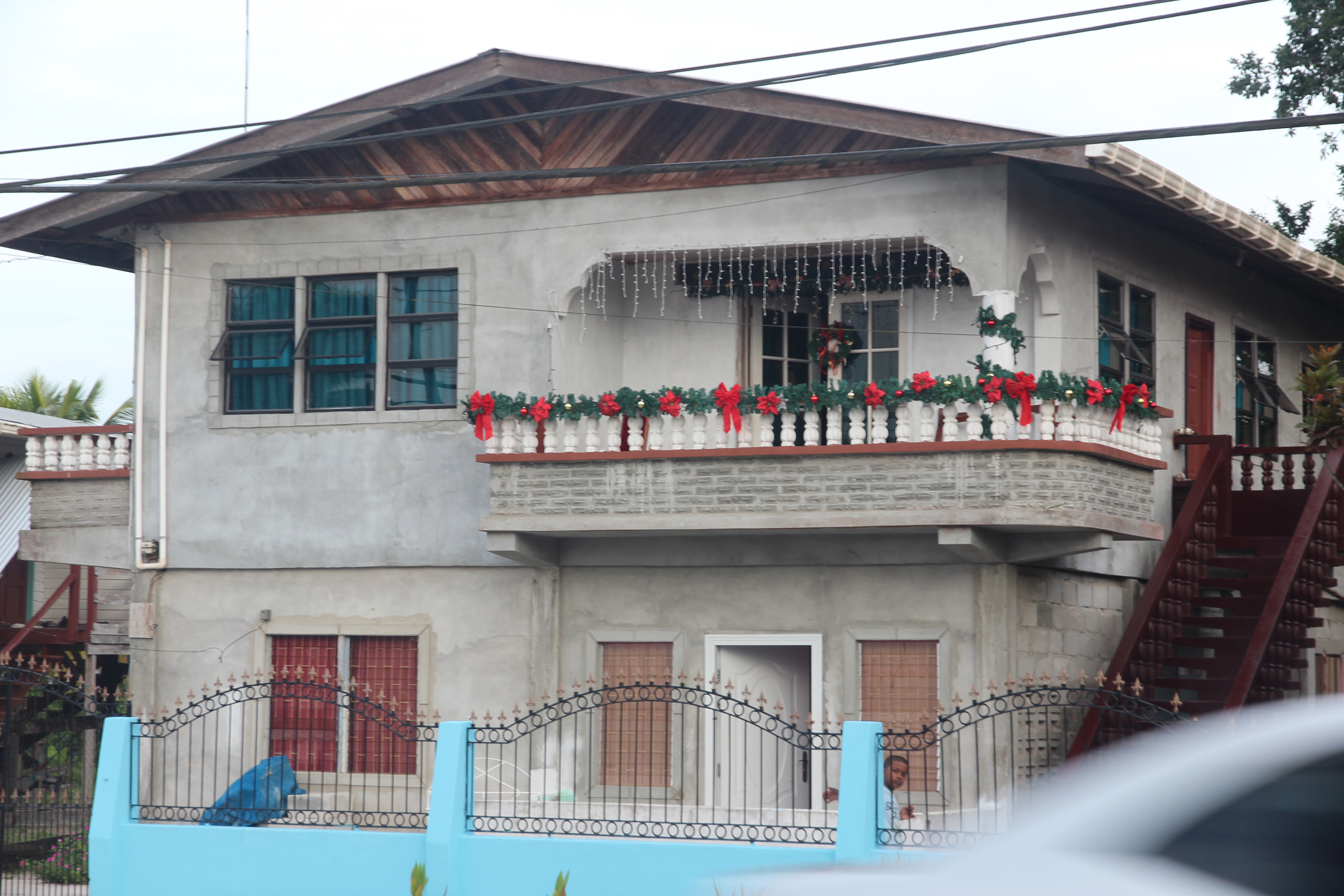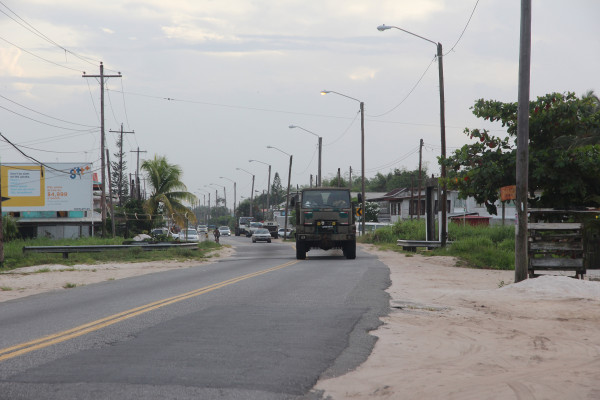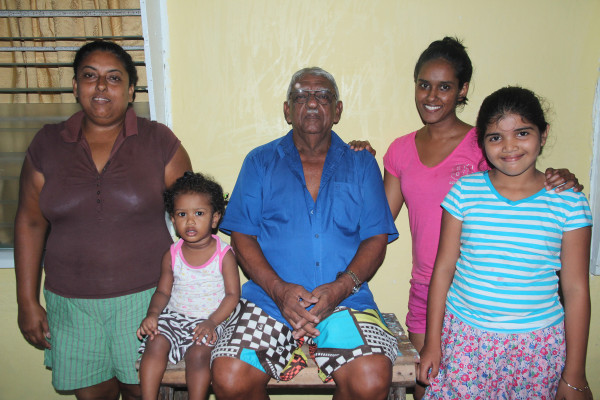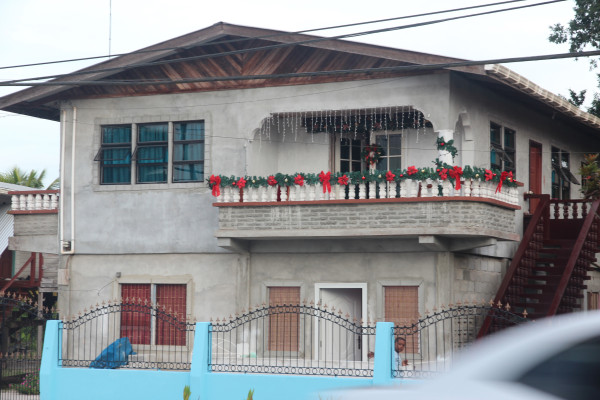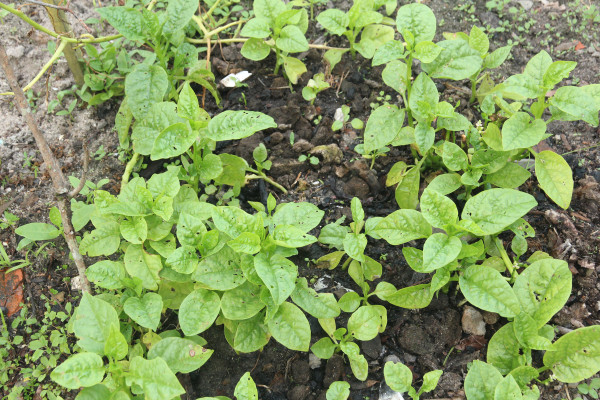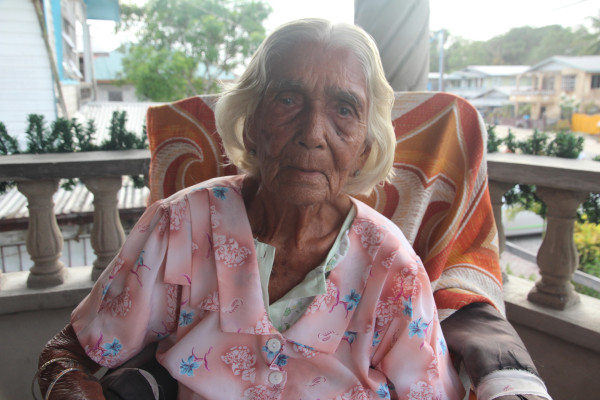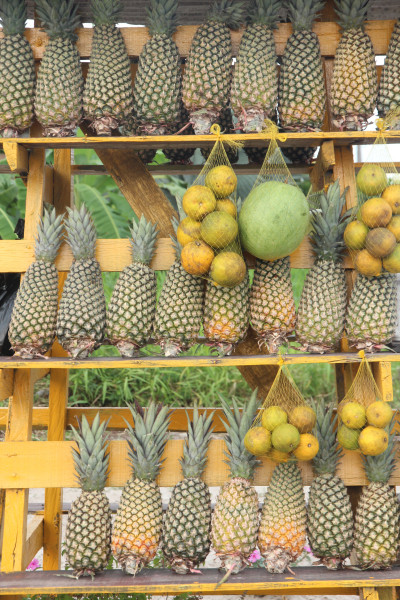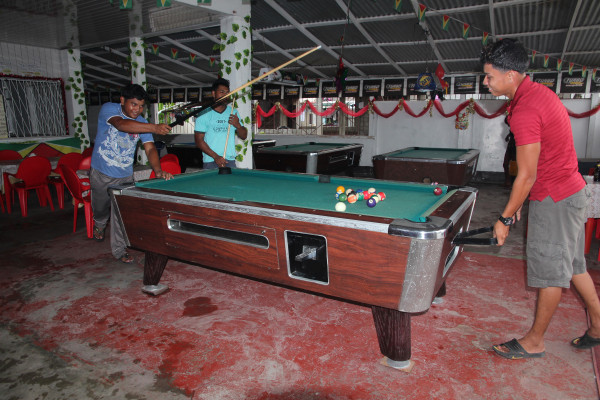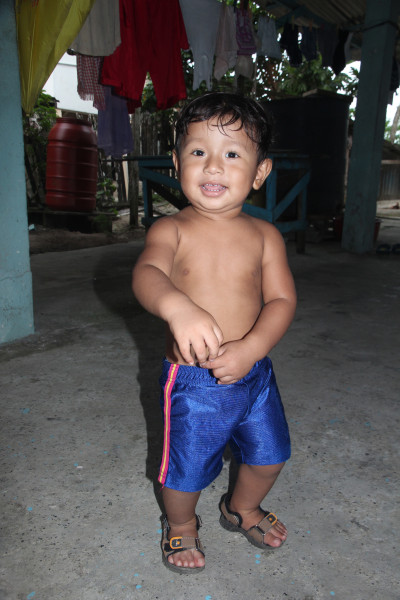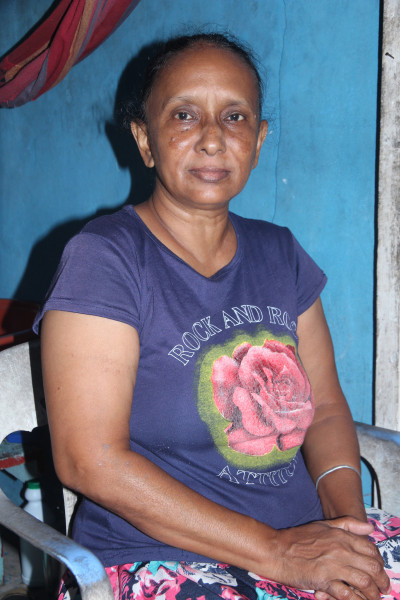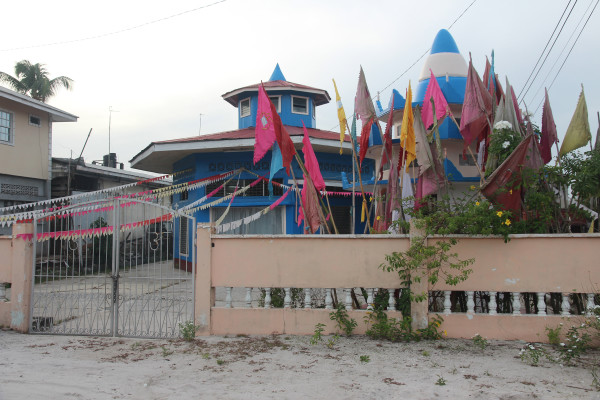Den Heuvel, on the East Bank Demerara, has a population of approximately 300 and is located just before Soesdyke. Its inhabitants; farmers, teachers, shopkeepers, housewives and persons working in the public and private sectors; refer to it as “Big Coverden,” while the village before it, Coverden, is referred to as “Little Coverden.”
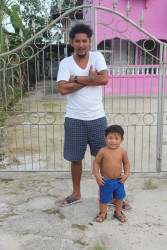
When the World Beyond Georgetown visited just before Christmas, the village was filled with a cacophony of sound: loud music from a bar and noisy traffic. While the bar was filled with people, the shops seemed bare. Those who weren’t in bars were busy cleaning and decorating. The children, happy that school was out, rode around on bicycles.
The name Den Heuvel is of Dutch origin and translates roughly to mean ‘small hill’; it usually carries the prefix ‘van’. No one in the village seemed to know how or why it was given its name. When we arrived at the home of Den Heuvel’s oldest resident, 95-year-old Samrat Ragnauth, we discovered that she was next door at her son, Seeraj ‘Suresh’ Ragnauth’s residence since he was visiting from Canada for the holidays.
Samrat sat in the farthest corner of her son’s house, observing the cleaning. She revealed that she was born at Enmore Estate but grew up in Mahaicony Creek. When she was 15, she married Ragnauth Singh and together they had 14 children. Six of her children died during childbirth, and of the eight who survived, only six are alive today. Samrat said proudly that she made no “wasteful children.” They grew up to become soldier, police officer, pump attendant, teacher and tailor. Four of them live overseas but return to Den Heuvel every now and again to see her. She communicates with them via phone calls and Skype.
In 1962, she, her husband and their children moved to “Big Coverden,” now Den Heuvel, to rear cattle and to farm. They reared cows and planted rice, cassava, plantains and cucumbers. Today, at 95, Samrat still plants. Her little kitchen garden provides her with bananas, eddoes, cassava, sweet potatoes, okra, red beans and breadfruit.
Samrat enjoys worshipping, and the Coverden Temple exists today because of her eagerness to have a place to do so. Many years ago she and a few others collected funds to build it. The temple is the only place of worship in the village.
At this point in the interview, Samrat’s son joined in. Suresh related that he worked with the NDC before he migrated. He said he would like to see a few developments in Den Heuvel. “I would like to see roads where dams are and for the road [East Bank Public Road] to widen,” he said. Though the section of the village where his mother lives has electricity and potable water, he wishes that persons living at the back of Den Heuvel would have the same conveniences as well.
Nearby we found Leila Chetram. She was born in Den Heuvel and attended the St Mary’s Anglican School (today known as St Mary’s Primary). After getting married, she left for Wales on the West Bank Demerara but returned a few years after. Leila said that Big Coverden ended at the cemetery in Soesdyke, but in the recent years, was cut off at the koker. The atmosphere, she said, is relatively quiet except for the bar nearby which sometimes operates beyond 2 am. The village is free of crime and they live nicely with each other, Leila said. Three cats stretched out under the house keep her company after her husband and son leave for work.
The village has street lights and most homes have landline telephones. A garbage truck picks up the garbage every Monday morning. Leila is grateful but wishes for a playground or recreational centre for the children and the young boys who would usually gather at the bar to play pools, although according to her, most of the land space in Den Heuvel is occupied.
Not too far away, Kishore Ramdeen lives with his daughter and grandchildren. Like Leila, he was born there. He said his father, Dwarka, was born on one of the ships that came from India. He, too, attended St Mary’s and he later worked for Guyana Airways for 27 years. Now a pensioner, he said, “I love to watch my Indian and English movies.”
He reminisced on his boyhood days, attending school during the day and “playing hopscotch, sal and hulio” at nights on the red brick public road. “The children grew up nice in those days. The parents took time to straighten them out. Today’s children back answer you,” the 75-year-old Ramdeen said.
He explained that Den Heuvel was an orange estate before it became a cane field. A lady known back then as “Auntie Bab” who worked along with Dr Charles, the late owner of both Little and Big Coverden, ran the orange estate. “We had a man name, John Alexander who came from St Vincent back in the late 1950s. He ran the sugar estate,” the elderly man explained. As he talked, his daughter, his grandchildren and a neighbour listened keenly.
A rice depot and feed shop are situated nearby and a truck was parked out in front waiting to be loaded. There are several fruit trees in Ramdeen’s yard and though he has never lived anywhere else, he thinks highly of his village. “Everybody lives nice. It’s a very quiet village. We never had a riot here,” he said.
